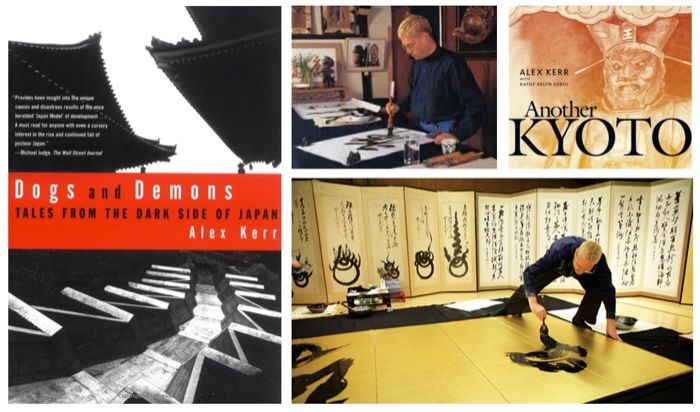Speaker:
- Alex Kerr (an Author and Restorer of old Japanese houses)
Moderator:
- Kyle Cleveland, ICAS Co-Director

Alex Kerr is a leading authority on traditional Japanese art, culture and aesthetics.While living in Japan off and on since the 1960s, with interludes at Yale University (Japanese Studies) and as a Rhodes Scholar at the University of Oxford, he has seen Japan undergo dramatic change as modernization has increasingly displaced traditional modes of life and transformed the landscape. Living nearby Kyoto in the village of Kameoka, he worked for a number of years at the Omoto-Kyo Shinto Sect, teaching Japanese arts (calligraphy, tea ceremony, Noh). Seeking a deeper connection with Japanese tradition, he took over a 400 year old Shinto shrine in Kameoka and converted it to a residence and, in the Iya valley, restored a 300 year old Minka farmhouse. Both have been acclaimed in architectural magazines as archetypes of how tradition and modernity can be integrated in ways that combine contemporary and traditional elements while being authentic to its history.
In his award winning book Lost Japan Kerr conveys his experience of honoring cultural tradition as a touch-stone for authenticity, even as the forces of modernization are pushing traditional culture aside or denuding it of its essential qualities.
In this lecture Kerr will focus on his book Dogs & Demons: Tales from the Dark Side of Japan. If Lost Japan was an homage to a nostalgic view of Japanese tradition, Dogs & Demons is the lover scorned, casting a withing gaze on the process through which globalization and modernity are erasing Japan and replacing it with a simulacra, denuded it of its original content.
About Dogs & Demons, Andrew Magorski, writing in Newsweek International wrote:
“Kerr argues that Japan is stuck in a “developing country” mind-set, which produces far more than misguided economic policies. 'Japan is essentially a postindustrial state with pre-industrial goals,' he writes. Hence, it’s considered progress when trees (with their 'messy' leaves) disappear; when the country lays down 30 times more concrete per square foot than the United States does; when virtually all the rivers are dammed and the seacoast is lined with concrete tetrapods; when Kyoto’s beautiful old city is dismantled and replaced by monstrosities like the New Kyoto Station. Kerr lays out a case, in convincing detail, that the politicians, bureaucrats and businessmen have all profited from a cozy, deeply corrupt system based on pave-and-build policies. The result is a trail of destruction – of the environment, ancient cities and the soul of a once proud culture.”
Register required for meeting access:
https://temple.zoom.us/meeting/register/tJEtfu-spzMiE9KRKWJnl4Va2Z0iq4Kdae9m
After registering, you will receive a confirmation email containing information about joining the meeting.
Thursday, Oct 20, 2022, 2022 12:00 PM - 1:30PM
This event is organized by the Institute of Contemporary Asian Studies (ICAS).
Note: All ICAS events are held in English, open to the public, and admission is free unless otherwise noted.
Alex Kerr is an author and restorer of old Japanese houses. Born in 1952 in Bethesda Maryland, he came to Japan as a child in 1964, and has been based in Kameoka, near Kyoto, since 1977.
Alex studied Japanese at Yale, Chinese as a Rhodes Scholar at Oxford, and in recent years has also traveled widely in Southeast Asian. His books include Lost Japan (published originally in Japanese in 1993, won the Shincho Gakugei Literary Prize, the first awarded to a non-Japanese),Dogs and Demons (2001), Living in Japan (2006), Theory of Japanese, Landscape (2014), Another Kyoto (2016), Destroying the Nation with Tourism (2019), and Japan Pilgrimage (2020).
Starting with “Chiiori,” a 300-year old thatched roofed house which he bought while still in college in 1973, Alex has gone on to restore over forty old houses in towns around Japan. He writes and speaks widely in Japanese as well as English on rural revival and town planning, sustainable tourism, Japanese art, and landscape.